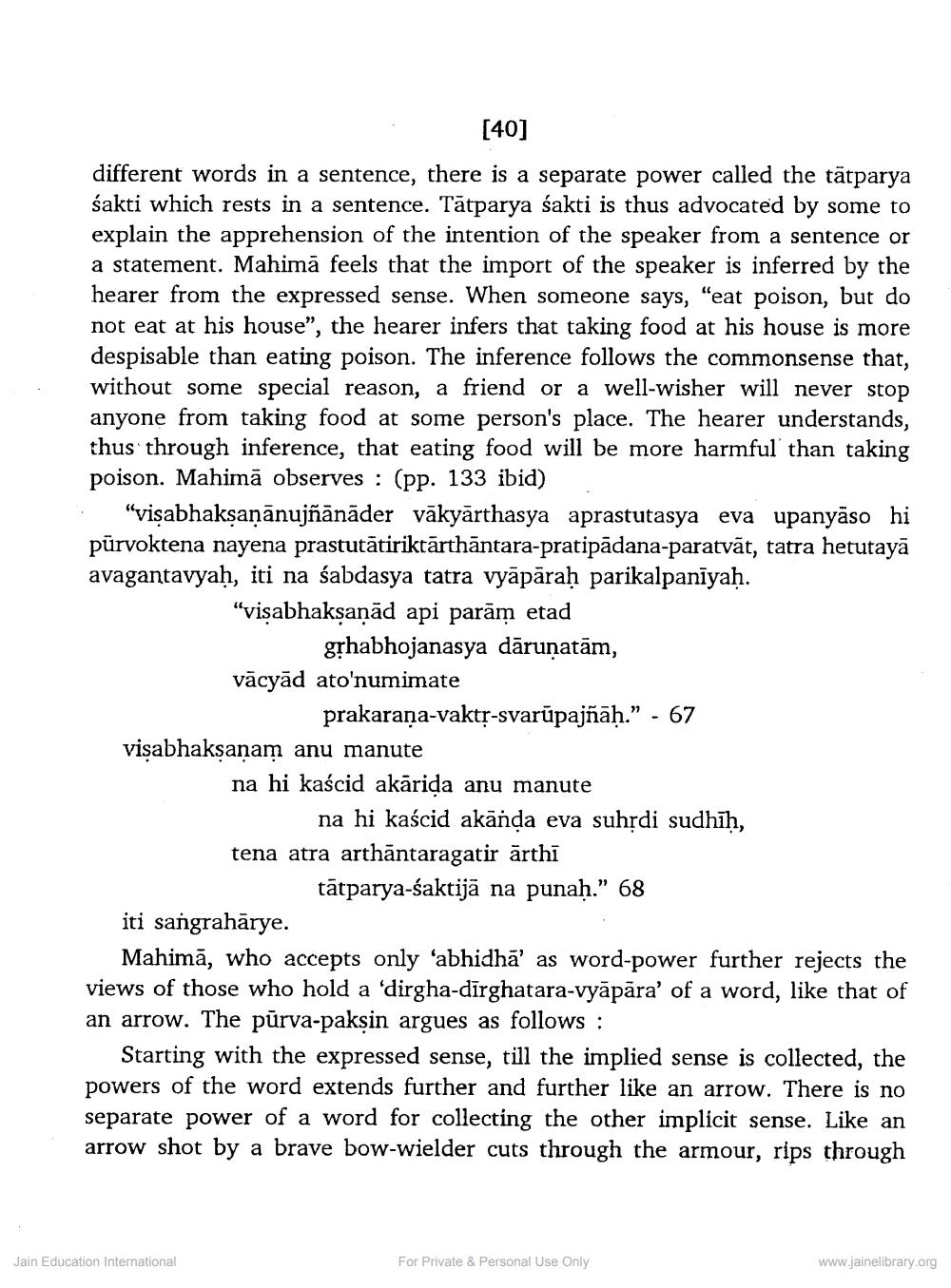________________
[40] different words in a sentence, there is a separate power called the tätparya śakti which rests in a sentence. Tātparya sakti is thus advocated by some to explain the apprehension of the intention of the speaker from a sentence or a statement. Mahimā feels that the import of the speaker is inferred by the hearer from the expressed sense. When someone says, "eat poison, but do not eat at his house”, the hearer infers that taking food at his house is more despisable than eating poison. The inference follows the commonsense that, without some special reason, a friend or a well-wisher will never stop anyone from taking food at some person's place. The hearer understands, thus through inference, that eating food will be more harmful than taking poison. Mahimā observes : (pp. 133 ibid) .
"visabhaksaņānujñānāder vākyārthasya aprastutasya eva upanyāso hi pūrvoktena nayena prastutātiriktārthāntara-pratipādana-paratvāt, tatra hetutayā avagantavyaḥ, iti na sabdasya tatra vyāpāraḥ parikalpanīyaḥ.
“vișabhakşaņād api parām etad
grhabhojanasya dārunatām, vācyād ato'numimate
prakarana-vaktr-svarūpajñāḥ.” - 67 visabhaksanam anu manute
na hi kaścid akārida anu manute
na hi kaścid akānda eva suhțdi sudhīh, tena atra arthāntaragatir ārthi
tātparya-saktija na punah." 68 iti sangrahārye.
Mahimā, who accepts only ‘abhidhā' as word-power further rejects the views of those who hold a 'dirgha-dīrghatara-vyāpāra' of a word, like that of an arrow. The pūrva-paksin argues as follows :
Starting with the expressed sense, till the implied sense is collected, the powers of the word extends further and further like an arrow. There is no separate power of a word for collecting the other implicit sense. Like an arrow shot by a brave bow-wielder cuts through the armour, rips through
Jain Education International
For Private & Personal Use Only
www.jainelibrary.org




